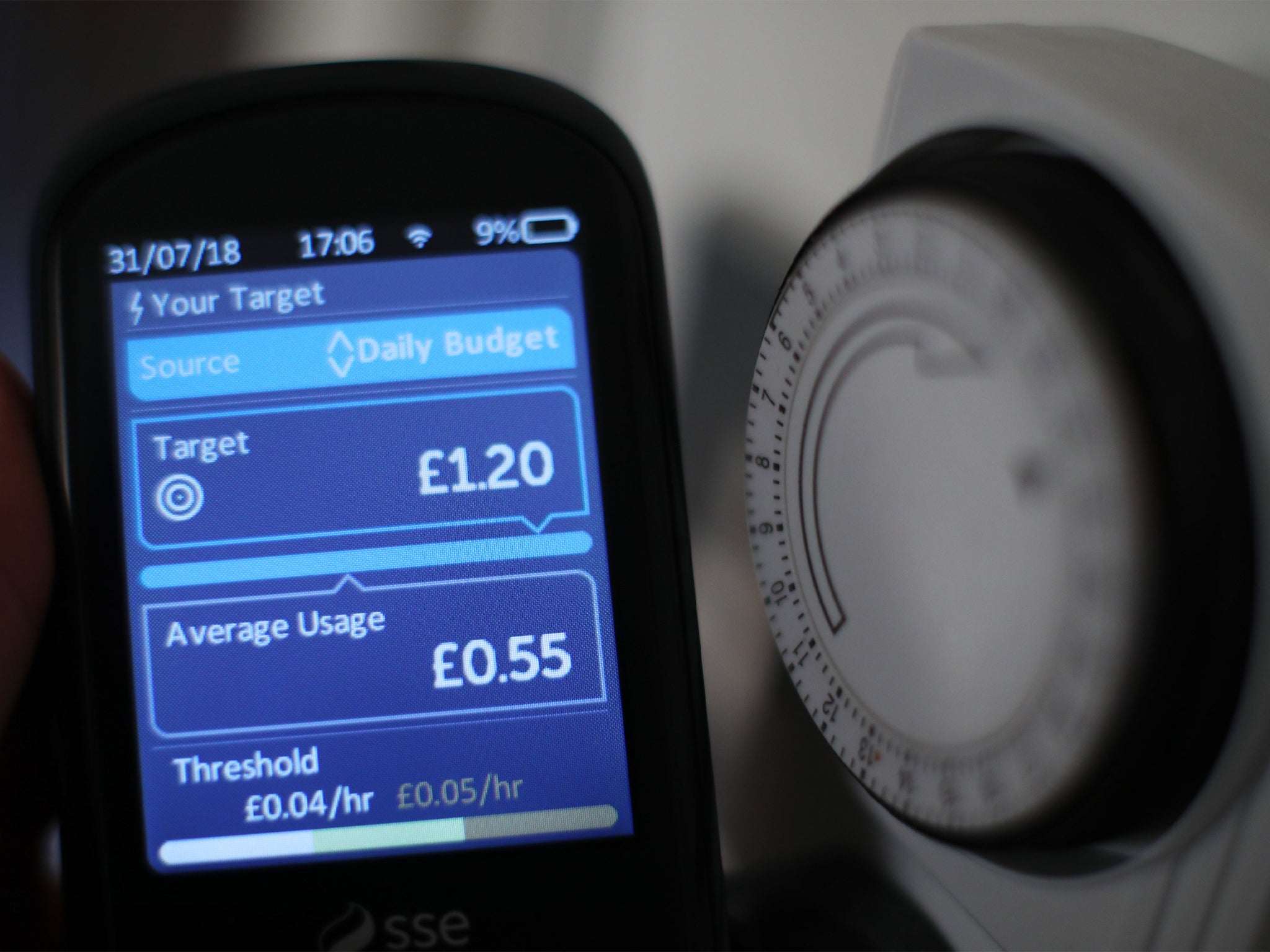Consumers could be automatically switched to fairer energy bill tariffs under new plans
Scheme is part of wider plans for greener UK energy system

Your support helps us to tell the story
From reproductive rights to climate change to Big Tech, The Independent is on the ground when the story is developing. Whether it's investigating the financials of Elon Musk's pro-Trump PAC or producing our latest documentary, 'The A Word', which shines a light on the American women fighting for reproductive rights, we know how important it is to parse out the facts from the messaging.
At such a critical moment in US history, we need reporters on the ground. Your donation allows us to keep sending journalists to speak to both sides of the story.
The Independent is trusted by Americans across the entire political spectrum. And unlike many other quality news outlets, we choose not to lock Americans out of our reporting and analysis with paywalls. We believe quality journalism should be available to everyone, paid for by those who can afford it.
Your support makes all the difference.Consumers could be automatically switched to a fairer tariff plan for their energy bills under government plans.
In a bid to make the system more equitable, the government said it wanted to stop suppliers putting loyal customers onto more expensive deals when their current contract ends.
Wider plans to create a greener energy system are due to be unveiled next week.
However, the scheme has been criticised by some switching sites who warn that the tariff proposals risked “lulling people into a false sense of security".
The plans come after recent estimates showed millions of households in the UK were currently stuck on energy suppliers’ standard variable tariff, which means they are likely being charged hundreds of pounds more than they could be paying.
The government wants to crack down on this “loyalty penalty” and suggest two possible routes within the plan.
The first, opt-in switching, means consumers are offered simple methods of switching to a cheaper tariff if their initial contact has ended.
The second, opt-out switching, means consumers are automatically switched – unless they choose not to be – to a competitive new contract if the initial one has ended.
A Whitehall source said: “We do not believe that energy companies should be able to roll over contracts indefinitely or punish long standing, loyal customers.”
They added: "That's why we're going to make it even easier for people to switch to cheaper tariffs and drive down bills so they can keep more money in their back pocket."
One switching website, Comparethemarket.com, said the plans have the potential for a “radical shake-up” of the energy system which could be “hugely beneficial” for households.
But the head of energy at the site, Peter Earl, expressed some skepticism about an opt-in, opt-out system for switching tariffs with the same supplier.
"It might detract people from shopping around for a better deal with alternative and more competitive suppliers," he said.
"If these changes are not implemented properly they risk lulling people into a false sense of security that they are on the cheapest tariff, despite better offers being available elsewhere."
Also within plans of a larger shake-up, the government are to offer further protections for vulnerable energy customers with the “Warm Home” discount scheme due to be extended to 2016 to cover an extra 750,000 households.
Nearly 3 million families in the UK are eligible for this discount with the bills of pensioners and households cut by up to £140.
The proposals are part of a wider plan to make Britain’s energy system greener as the country pledges to become carbon neutral by 2050.
The Whitehall source added that moves to be greener could support up to 220,000 high-skilled jobs in the UK’s “industrial heartlands" as plans involve a major investment in offshore wind, clean hydrogen, carbon capture and storage and advanced nuclear power.




Join our commenting forum
Join thought-provoking conversations, follow other Independent readers and see their replies
Comments